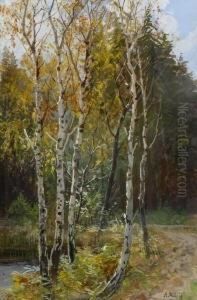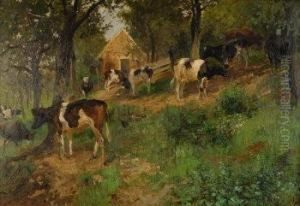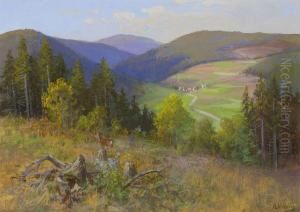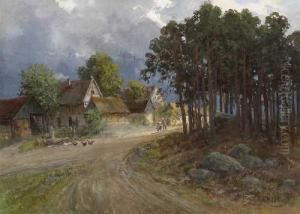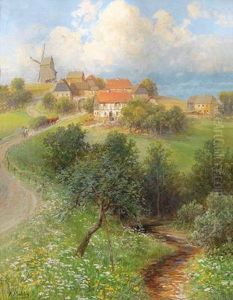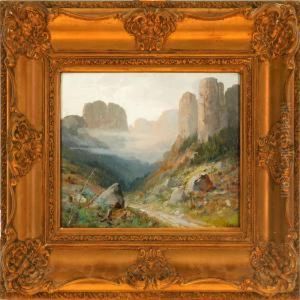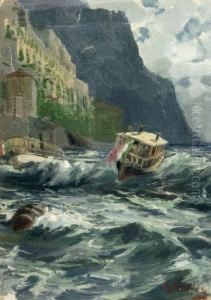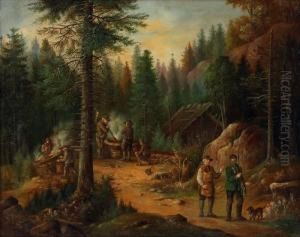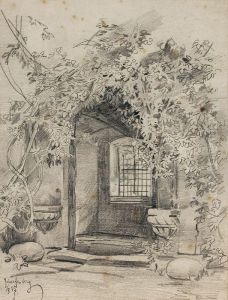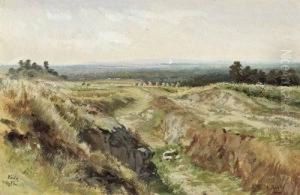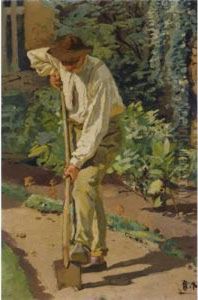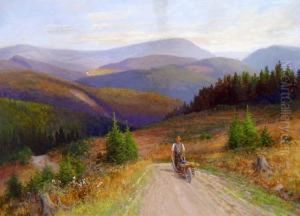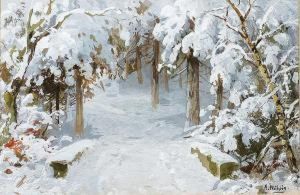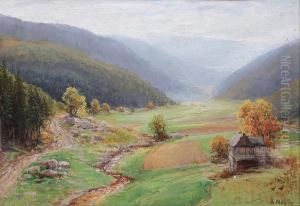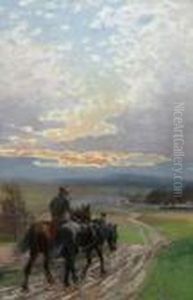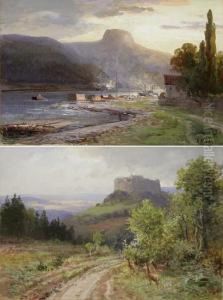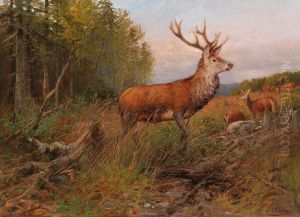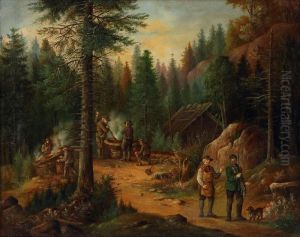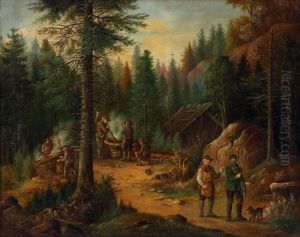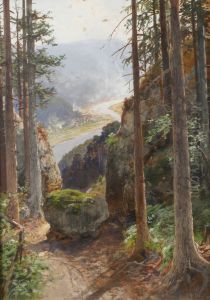Albert Ernst Muhlig Paintings
Albert Ernst Muhlig was a German painter, born in 1879 in Dresden, Germany. He was particularly known for his depictions of rural life and landscapes, capturing the essence and tranquility of the countryside with a distinctive touch that set his work apart from his contemporaries. Muhlig's early life was steeped in the rich cultural heritage of Dresden, a city renowned for its art and architecture. He was deeply influenced by the Dresden School of painting, which emphasized realism and attention to detail, qualities that would later become hallmarks of his own work.
Muhlig received his formal art education at the Dresden Academy of Fine Arts, where he was trained in the classical traditions of painting. However, as he developed his unique style, he began to experiment with more impressionistic techniques, incorporating lighter brushstrokes and a brighter palette to capture the changing effects of light and atmosphere in his landscapes. Despite these innovations, Muhlig remained committed to portraying his subjects with honesty and integrity, eschewing the more abstract tendencies of modernist movements emerging at the time.
Throughout his career, Muhlig remained somewhat of an enigmatic figure in the art world, choosing to focus on his work rather than seeking the limelight. His dedication to his craft earned him respect among his peers, though he never achieved the level of fame enjoyed by some of his contemporaries. Despite this, his paintings continued to be sought after by collectors and art enthusiasts, especially those with an appreciation for the beauty of the German countryside.
Muhlig's work is characterized by its expressive use of color and meticulous attention to detail. He had a particular talent for capturing the nuances of rural life, from the textures of the landscape to the daily activities of its inhabitants. His paintings often evoke a sense of nostalgia, reflecting a world that was rapidly changing in the face of industrialization and modernization.
Albert Ernst Muhlig passed away in 1944, leaving behind a body of work that continues to be admired for its beauty and historical significance. Today, his paintings can be found in museums and private collections around the world, serving as a testament to his skill and dedication as an artist. Muhlig's legacy is that of a painter who was deeply connected to the land and its people, capturing the essence of rural Germany with a sensitivity and depth that remains unmatched.
